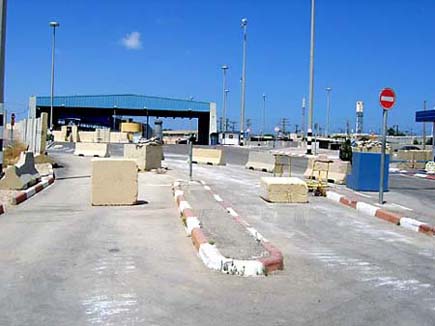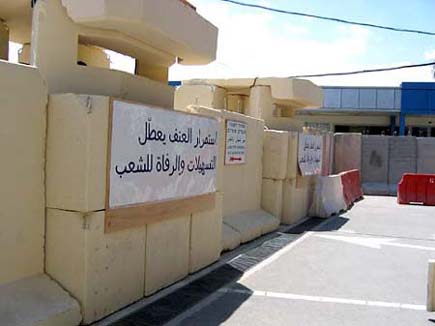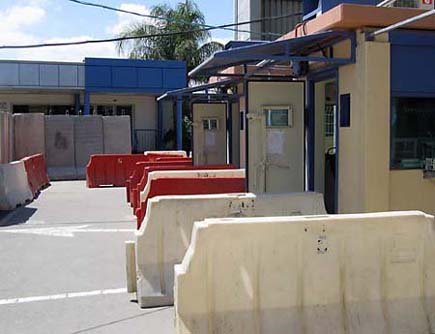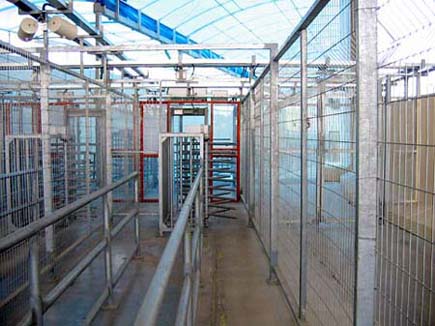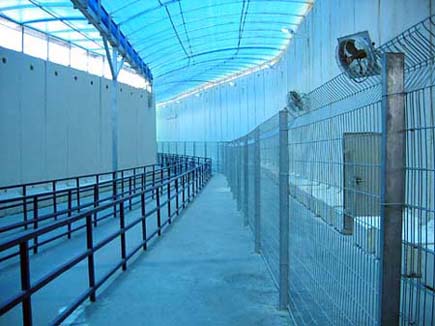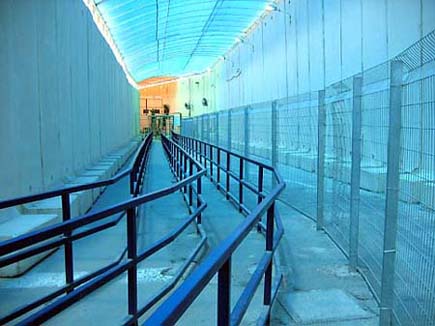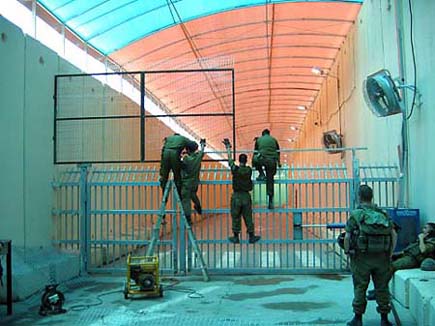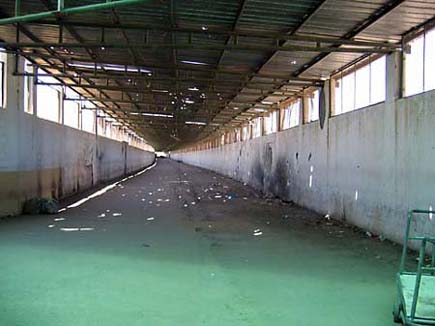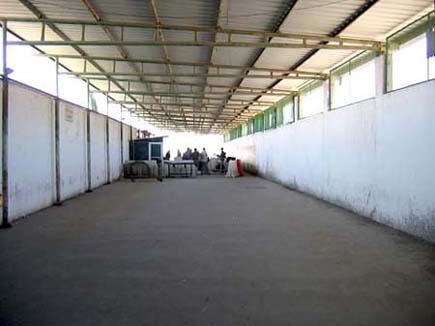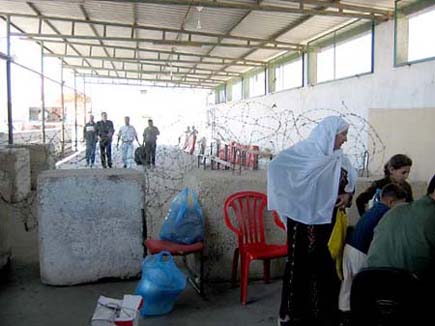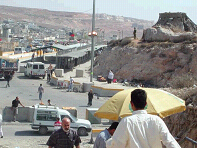
Bright-colored umbrellas line the huge cement blocks at the passage, shading the numerous vendors selling everything from fruits, vegetables and chickens to books, CDs and household goods. Walking through this 50 meter passage, one would think it is an outdoor marketplace. But if you look just behind this quasi-bazaar, the prison walls of Israel’s illegal occupation are closing in and separating Palestinians from each other and their livelihoods as well as casting a shadow over freedom. This is Qalandiya checkpoint at the final stages of a disastrous transformation.
Lately, the media and the international community have been completely distracted with news about the Gaza disengagement plan, rescheduled to take place in August. It has been held as a positive step toward the reality and hope of peace. But that is just what it is: a distraction from the escalation of violations of international law, occupation injustices against the Palestinians and prison-like characteristics of the West Bank. The construction of the Annexation Wall is in full force, cleansing more of Israel of Palestinians and creating a tenuous border. Settlements are expanding in huge chunks, connecting existing settlements and encircling, or rather choking, Palestinian neighborhoods and villages. Palestinian home demolitions are taking place more and more everyday with no real legal basis.
If these actions are not enough to reveal Israel’s intention and systematic policy, then the transformation of Qalandiya checkpoint and policies of movement should be. By the end of this summer, the Annexation Wall, which was deemed illegal by the International Court of Justice, will be completed. Aside from the large cement plates and towers being erected, the Israeli army is also building some type of ‘civil administration’ buildings alongside the checkpoint. Actually, the site has exceeded the characteristics of a military checkpoint and is being interchangeably described as a “terminal” or “international border crossing” between Jerusalem and the West Bank.
Consequently, east Jerusalem Palestinians will now be denied freedom of movement into Ramallah and the West Bank, according to an announcement by an Israeli army commander. Beginning in July, Palestinians holding the blue Jerusalem identification cards will be required to have permits to enter the area just as Palestinians with the green West Bank identification cards currently need to have permission to enter Jerusalem or other parts of Israel. It is also expected that in the near future, the law which forbids Israeli citizens from traveling to Palestinian territories will be interpreted to include Palestinians with Jerusalem IDs.
The problem lies not only with political and human rights freedoms, but also social and economic freedoms. Since the second Intifada began in September 2000, east Jerusalem has been suffering economically, resulting in many Palestinians moving to Ramallah for work. The dilemma now is the choice these Palestinians have to make: to give up their homes, education and work in Palestinian territories in order to keep their blue IDs and greater freedom of movement around Israel or sacrifice this freedom and their IDs to keep their homes, livelihoods and Palestinian connections, thus becoming isolated like the West Bank Palestinians are now. This policy will complete the separation full circle.
The not-so-subtle goal is to drive the Palestinians out of Jerusalem so that Israel can annex it fully, eliminating the possibility of Jerusalem being a final-status issue in future peace negotiations, if they ever really take place. The transformation of Qalandiya checkpoint is the latest manifestation of Israel’s persisting policy actions to physically cut Jerusalem off from the West Bank.
Adding to the disaster of this transformation is the fact that Qalandiya is not on the Green Line between Israel and the West Bank, but is rather inside the 1967 borders of the West Bank on the Jerusalem-Ramallah road, in a narrow strip north of Jerusalem. A series of tunnels and a raised highway will connect and serve the residents of the illegal settlements in the West Bank who wish to travel to and from Israel.
Akiva Eldar described the future of Qalandiya in a recent Ha’aretz article: “Seven lanes for pedestrians, equipped with the last word in security technology, and three lanes for vehicles will be put at the disposal of Jerusalemites ‘with blue identity cards’ … There will also be a ‘green lane’ for elementary and high-school students, whose homes are separated from their schools [by the Annexation Wall].”
So despite claims of improvements in the conflict of the region, major Israeli injustices and international law violations are jeopardizing a future of peace. Action to stop these procedures is urgent, and it is up to the international community to step in and ensure the same freedoms and justice for all people that it constantly preaches to the world.




